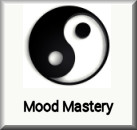Sometimes de-stressing conversations are difficult because one or both partner’s are uncomfortable hearing negative emotions, even when they are not directed at them. I find this tendency a lot in my practice. Not being able to hear our partner’s negative feelings feels as if our partner is turning away from us. It is immensely helpful to be there for your partner when they are upset. In fact, it is one of unwritten expectations of marriage. I often hear, if only he/she could just understand me. A book i often recommend for couples is the 7 principles for Making Marriage Work and this book has a great quote for this ideal that says, “when you are in pain, The world stops and I listen”.
Usually the common tendency to avoid negative feelings is rooted in childhood. Often someone will say they knew their parents loved them even though they did not say much. Their parents may have offered little or no comforting. Expressing sadness or fear meant you were weak or a wimp or some other negative connotation. A child’s expression of anger was viewed as disrespectful. Growing up in families where emotions are viewed like this, teaches the child to deal with their emotions on their own, typically by adopting a self – reliant problem solving style which ignores feelings. Learning self-reliance and good problem solving skills is certainly helpful in life but in order to become truly intimate, you also need to learn how to share and support your partner emotionally.
If either of you find this type of challenge for yourself, the following recommendations will help.
*Acknowledge the difficulty. Admitting that you are willing to work on changing this is a powerful start.
*Self soothe if you feel overwhelmed by your partner’s feelings.
*Remember the goal is understanding. Listen without solving or minimizing their feelings.
* Use explanatory statements and open-ended questions. Examples of that are:
Tell me the story of that
Tell me all of your feelings
What are your concerns?
What do you need from me right now?
Help me understand this from your perspective
what else is there?
Some clients get overwhelmed when their Partner cries and want to try and fix whatever it is as fast as possible. Some tips for listening to sadness and crying:
* Ask what is missing. Sadness often comes form a loss, which may or may not be obvious.
Examples of questions to ask:
You seem so sad. What’s going on?
Do you feel you have lost something?
Don’t try to cheer up your partner. It is usually more helpful to listen to their sadness then to try to relieve it. Avoid minimizing or trying to shut down their feelings.
Tips for listening to anger:
*Wait until your partners anger is no longer at its height before saying anything. No one can listen when their emotions are at their height.
*Try not to take it personally. Their anger may not be about you. Even if it is, becoming defensive only makes it worse.
*Don’t tell your partner to calm down. They will likely feel that you believe their anger is unjustified or unacceptable for some reason. Asking questions and empathizing is the way to help them to manage their anger even if it is directed at you.
Don’t minimize your partner’s feelings. Be there with them in their feelings -listen for understanding. Your partner wants to be known by you. Go forth and Be wonderful! Try this today.





